SUMMARY
This is AI generated summarization, which may have errors. For context, always refer to the full article.
![[OPINION] Tale of the tape: Who are the greenest candidates?](https://www.rappler.com/tachyon/2022/01/Greenest-candidate-January-29-2022.jpg)
The green agenda is perhaps the most overlooked issue heading into the 2022 elections. Our experiences from both climate change and the COVID-19 pandemic have disproven the old notion that achieving national sustainable development is possible without caring for our climate and the environment.
The question is: Where do the six leading presidential and vice presidential aspirants stand on the green agenda?
The green agenda
All aspirants have recognized the urgency of addressing the climate crisis. The Philippines, one of the nations at highest risk to its impacts, would need its next leaders to implement stronger solutions after a mediocre performance by the regime of President Rodrigo Duterte. The aspirants have previously made general proposals, including reducing the country’s dependency on coal, developing renewable energy, forest conservation, and enhanced access to adaptation funding for vulnerable communities.
They also agree on the imperative to end plastic pollution, for which the Philippines is known as one of the worst in the Asia-Pacific. Aspirants such as Manny Pacquiao and Sara Duterte are pushing for the phaseout of single-use plastics in recent years. Meanwhile, Isko Moreno believes that banning plastics should not be prioritized ahead of programs to end poverty, as seen during his term as Manila mayor.
One of the most divisive issues have been on the creation of a Department of Disaster Resilience (DDR), which aims to centralize powers for responding to potential calamities. As a priority agenda of the current administration, its present and former allies including the Pacquiao–Atienza tandem and Tito Sotto authored bills for its establishment. Other hopefuls such as Leni Robredo and Panfilo Lacson questioned its necessity due to potential issues related to availability of funding and more red tape.
Another issue where the aspirants have conflicting views is on mining. The ticket of Ferdinand “Bongbong” Marcos Jr. and Sara Duterte have openly advocated for responsible mining done in a sustainable manner, seeing its potential to help the growth of the Philippine economy. This is in contrast to the position of Leody de Guzman and Walden Bello, who have long opposed mining.

As we enter the election campaign season, Filipinos need more details and clarity on the climate and environmental platforms of these candidates. One of the most critical concerns involve where our energy comes from, which matters for a nation with one of the highest electricity rates in Asia.
Green groups have long advocated for an urgent, just transition to a country powered by renewable energy (RE). However, some of those running in 2022 have said they are open to supporting nuclear and waste-to-energy as either substitutes to coal or a short-term solution while RE technologies become more mature.
In relation to this, most of the aspirants have also expressed support for a joint exploration of the West Philippine Sea for oil and gas resources. This comes under the condition that any agreements would be under our nation’s jurisdiction and achieved through a peaceful, diplomatic process.
Those aspiring to be the next president and vice president must also make a strong statement on climate and environmental justice. The Philippines is among the world’s most dangerous for environmental defenders, a situation that worsened under Duterte’s leadership. Cases of indigenous peoples and marginalized communities being either displaced or harmed are reported in areas with mining activities, construction of infrastructure like the recently approved Kaliwa Dam, and coal plants.

Trends to remember
Based on current information, some of the known green positions of candidates are strongly aligned with their reputation and stance on issues. For example, Lacson, known for his stance on good governance, previously criticized the Bureau of Customs for failing to stop the illegal dumping of foreign waste, including plastics, on Philippine territories. Vice presidential aspirant Willie Ong, a cardiologist, has also provided some of his environmental and climate stances through the lens of public health, as evidenced in his online posts.
Some hopefuls have also yet to present their positions on green issues of national significance – which they must do during the official campaign season – due to their current roles. Moreno and Duterte, the mayors of two of the country’s largest cities, have yet to state clear opinions on issues such as the Kaliwa Dam and the DDR. Ong, selected to appeal to voters hoping to solve the pandemic, needs to provide more of his stand on issues outside the public health lens.
Some of the candidates, especially Marcos Jr., may choose to not give too specific positions as a political strategy to avoid alienating their allies and supporters. While a smart political tactic, this lack of transparency has hurt the implementation of national green laws, policies, and programs, many of which were delayed for years. Such an attribute has no place in a government expected to lead the nation toward sustainable development.
As voters, we must remember that there are other elective posts up for grabs in May. It is expected that because this is the Philippines, whoever wins the presidency would receive the allegiance of most of the incoming members of Congress, regardless of their political histories.
This does not guarantee, however, an effective style of governance on the green agenda or anything else, as proven during the Duterte regime. It also does not mean that those who ran with the endorsement of presidential aspirants would always follow their whims, although most of them probably will.
Lastly, the aspirants’ green platforms are not the only consideration in choosing our next leaders. They must also have other required skills and traits, including effective track records on governance, foresight, and systems thinking; lack of pending or proven criminal offenses; strong political will, compassion, and respect for peoples and cultures; and moral integrity.
We call on all candidates to publicize their green platforms to the Filipino nation. We deserve better. We need better for our collective sustainable future.
We call on Filipinos to vote wisely. Never forget what it takes to be a truly good leader. Never again should we repeat mistakes of the past, for our common home. – Rappler.com
John Leo is the deputy executive director for Programs and Campaigns of Living Laudato Si’ Philippines and a member of the interim secretariat of Aksyon Klima Pilipinas. He has been representing Philippine civil society in global and regional UN conferences on climate and the environment since 2017. He is also a climate and environment journalist.
Add a comment
How does this make you feel?


![[New School] Tama na kayo](https://www.rappler.com/tachyon/2024/02/new-school-tama-na-kayo-feb-6-2024.jpg?resize=257%2C257&crop=290px%2C0px%2C720px%2C720px)
![[Only IN Hollywood] After a thousand cuts, and so it begins for Ramona Diaz and Maria Ressa](https://www.rappler.com/tachyon/2024/02/Leni-18.jpg?resize=257%2C257&crop=262px%2C0px%2C720px%2C720px)
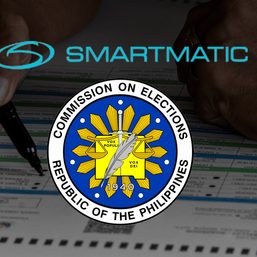
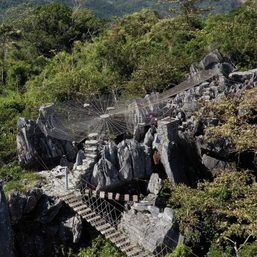
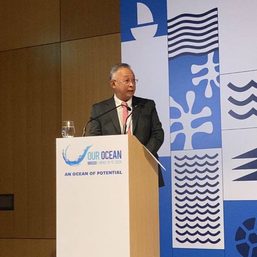
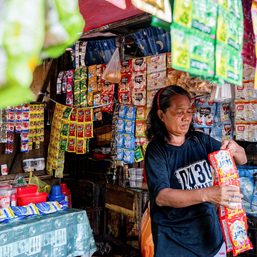
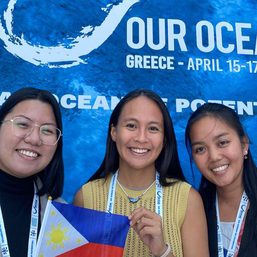
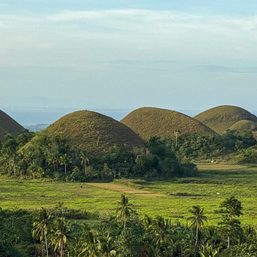
There are no comments yet. Add your comment to start the conversation.